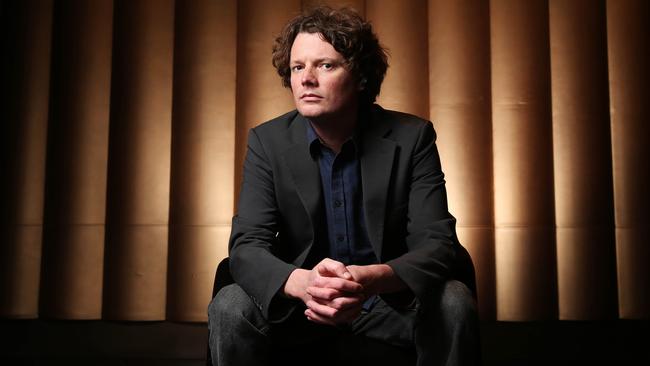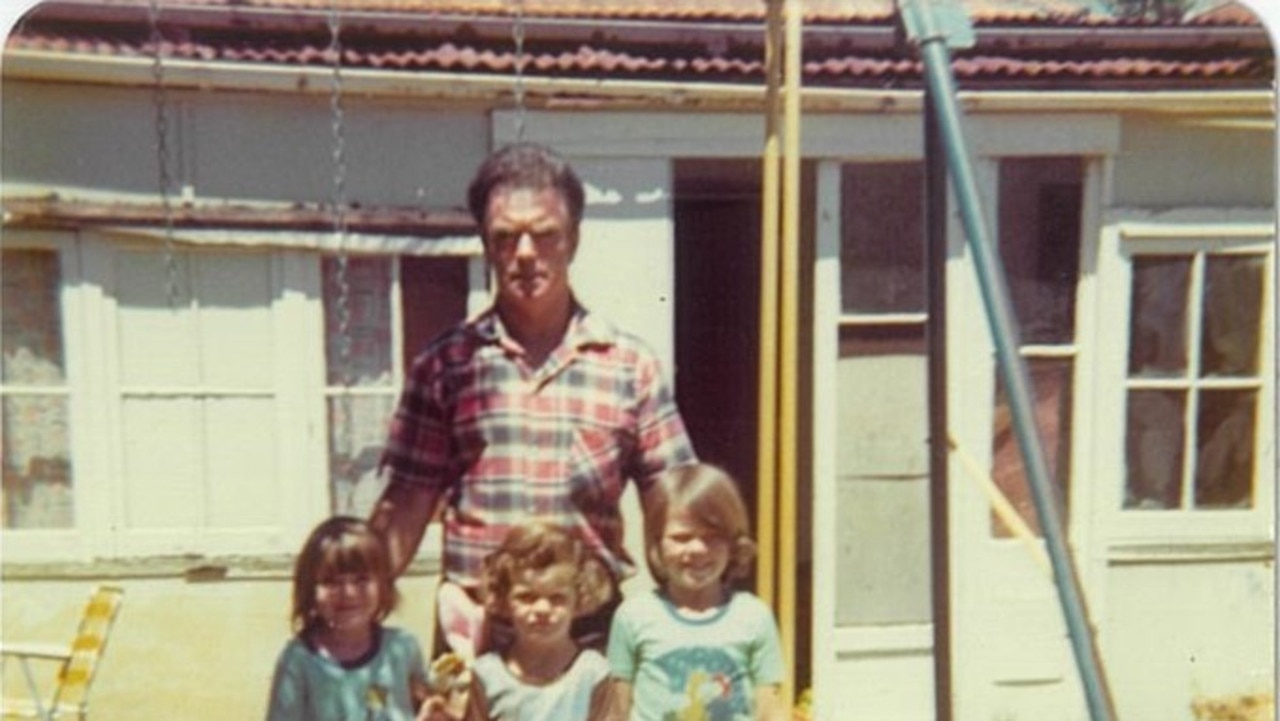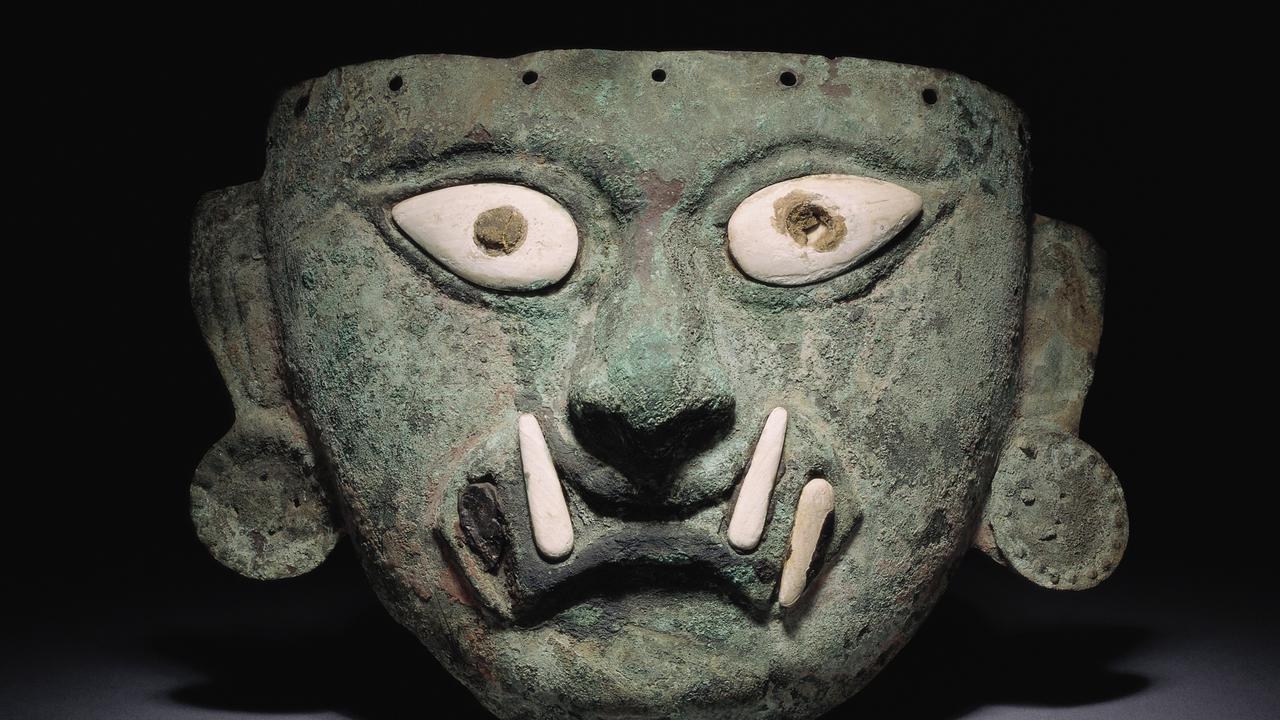Otto Bloom lifts filmmaker Cris Jones out of Byzantium crisis
Cris Jones’s debut film feature has had a dream launch, in contrast with the fate of his previous project.

Cris Jones is launching his debut feature, The Death and Life of Otto Bloom, in the best of circumstances; it has the opening-night spot at the Melbourne International Film Festival this month. But the story of his first feature is closely bound up with the one that got away.
A couple of years ago, he came tantalisingly close. Midnight in Byzantium, a feature script he had written, was ready to go into production. He’d had development support and a travel grant, and he had a cast that included Xavier Samuel, Miranda Otto and Sam Neill. He was preparing to shoot. Then funding fell through at the last minute, and the project with it.
“It was the worst. It really felt like a crossroads for me,” Jones says. “I decided I would either write something new as quickly as I could and try to get it up, or I would really need to find something else to do.
“I was 34, it felt as if I was banging my head against a wall, trying to do this thing and getting nowhere. Or getting very close, which is as good as nowhere.”
The Death and Life of Otto Bloom is the film that emerged from this moment of crisis. It’s a story of time, love and physics, about a man who experiences life backwards — more economical, but no less imaginatively ambitious than Midnight in Byzantium.
He is anxious to differentiate his premise from that of another tale of reversal, The Curious Case of Benjamin Button, the F. Scott Fitzgerald short story adapted for the screen in 2008, in which Brad Pitt plays a man who ages in reverse.
Otto ages normally but he experiences life backwards, remembering the future rather than the past. The consequences of living this way are far-reaching and mystifying — for Otto and for those around him.
For MIFF artistic director Michelle Carey, Otto Bloom is the perfect film for opening night. “I really like the combination of the profound theme, the questions about humanity and relationships and how we live our lives, told in this very breezy, almost new wave style,” she says.
Otto’s story plays out in a quasi-documentary fashion, related through the recollections of others. The film begins with a montage of newspaper clippings, headlines, grainy photos and front-page news stories. We learn, among other things, that the narrative begins in the 1980s, and that its central character is variously seen as a genius, a visionary, a madman, a freak and a fake. As the film unfolds, we are taken through stages of his life: Otto as scientific curiosity, artist, celebrity, inspirational figure, pariah — and above all, enigma. We’re also told, by a woman who turns out to have been closer to him than anyone else, “I don’t think anyone can honestly say that they truly knew Otto.”
This is Ada Fitzgerald, a neuropsychologist, who investigates the phenomenon of Otto and falls in love with him at the same time. Ada is played by two different actresses: Rachel Ward and her daughter Matilda Brown. Ward, now principally a director, takes her first film role for many years.
Jones came to filmmaking somewhat indirectly. He hadn’t thought about it as a career, he says, although it had always been important to him; when he was nine, he and his older brother and two cousins would make little movies together, using a Super 8 camera. At school in Sydney, he and his friends would often make films rather than write essays — the school encouraged them, he says, because they put a lot of effort into it. He wasn’t a reader until he left school, when it was no longer compulsory, and books suddenly became interesting. “I started an arts degree, but I was a terrible truant,” he admits. He had a series of jobs, working as a projectionist at three different cinemas.
“You see a lot of films that way. And I thought, maybe film school would be possible, at least I’d be studying.”
In 2003, he went to Melbourne, to the Victorian College of the Arts, where he came to the attention of producer Melanie Coombs, whose films include Adam Elliot’s Oscar-winning animation Harvie Krumpet.
Coombs spotted Jones early. She was acting as an external assessor for first-year students, she says, and she remembers how his film stood out from the rest. “There was the arguably necessary purging of angst. Or gangsters. And then there was Cris’s seven-minute short about Heisenberg’s uncertainty principle.”
She gave him an A, and at the end-of-year screening she went up to him and introduced herself. “I offered to be his mentor for the next two years and said, ‘then I’d probably want to be your producer’. He stood there blinking — but that’s what happened.”
She helped him negotiate “the trials and tribulations of film school”. His graduation film, Excursion — a dense, surreal vision of life’s absurdity — screened at festivals worldwide, including MIFF, and won several awards.
Coombs compares Jones with Elliot, both writer-directors whom she regards as “the real deal”. “Cris is the best-read person I’ve ever met, but that’s because he’s trying to understand the world and how it works.” His films, she suggests, might be constructed around complex ideas, but they are “designed to provoke thought without making anyone feel dumb. He makes you interested and intrigued, and there’s emotional impact at the end.”
For Jones, “influences are often unconscious, and you notice them after the fact”. Some are literary, some are drawn from science. “I like the philosophical ramifications that come with our physical understanding of the universe.” Making a film about Heisenberg’s principle — one of the most famous ideas in physics — can involve thinking about how we feel in trying to come to terms with its implications. “You know how they say that we live in uncertain times. But if every single subatomic particle is uncertain, then no wonder that it’s all a bit confusing and overwhelming.”
Otto Bloom might be triggered by a scientific theory, but it’s also a film about emotions and personal experiences. Some of the storytelling decisions are undoubtedly personal or nostalgic, he says. “It’s not a conscious thing,” he says, “but I was born in 1980, my first memories are from ’83, and that’s when the film starts.” His experiences with relationships have found their way in some fashion into the film.
Yet for the scientific logic underpinning it, he says, “It was still important to have answers, particularly for the actors. They’d play a game. First Xavier and Matilda, then Rachel, they’d say, ‘uh-huh, I think I’ve got you, how does that make sense?’ And I’m happy to say that they never got me, I always had the answer.”
Samuel had more specific questions about how to depict his character. In the period before shooting started, Jones says, “Xavier and I had a fair bit of time sitting down and talking and having coffee. He asks really interesting questions and brings a lot of ideas and uses a lot of visual references.” He wanted to know, for example, small but surprisingly resonant details: does Otto smoke, does he wear a watch? “Things I hadn’t thought about before. Often I tried not to go with my initial response, but you have to explore these things.”
Sometimes there were more general reference points. One of the interview subjects in the film, a police officer, says of Otto, “it’s as if he’d just dropped down from outer space”. Jones says he and Samuel discussed the figure of David Bowie. “And I think I asked him to watch The Man Who Fell to Earth” — in which Bowie plays a visitor from a dying planet — “because I think there’s a little bit of that, he’s a bit like an alien” but not labouring the point, “doing it just as a shade”.
Samuel was also continually challenged by an essential element of Otto’s identity. “One of the keys for an actor in a scene,” Jones says, “is the idea of ‘where have I just come from?’ and ‘where am I going?’, and of course all of that is reversed for Otto.”
It was Jones’s idea to cast Ward and Brown, mother and daughter, as the same character, Ada, at different times. He’d imagined Ward as the older Ada, “but I thought she wouldn’t want to, she’s a director now”. Then he remembered, out of the blue, seeing a short film she had made with her daughter in 2003, so he “went home and checked and thought, ‘oh my gosh, this could really work’ ”.
He called Coombs and a meeting with Ward was arranged. They spent an hour talking about other things before she told him that she had already decided to take the role.
There were challenges, he says a little ruefully, in portraying the time in which the film is set. When he was coming up with a new, low-budget project in the aftermath of Midnight in Byzantium, he hadn’t given this any thought. “I said to myself, ‘we’re doing it as if it’s a documentary, a large part of it is interviews, we can make it very cheaply’ — not even thinking, ‘hang on, it’s a period film’.”
Aesthetically, he says, “we decided to go for 80s lite. The 80s can be very overdone in films.” When people search for clues to the style of the period, he says, “I still think there’s a tendency to look at features from the time, when I think people should look at documentaries.”
There were strokes of good fortune: they got word that a TV movie set in the 80s was dumping costumes, and managed to acquire them, mostly for extras and secondary roles. And there were non-negotiable moments of authenticity, such as the Super 8 images that are part of the narrative: Jones was encouraged to create the effect with a filter, but he wanted the real thing. “It’s not just a visual concern,” he says, “it affects the performances. Xavier and Matilda were so spontaneous” and using the Super 8 camera “was like playing with a little toy”.
Documentary maker Errol Morris was a stylistic inspiration, Jones says, mentioning films such as The Thin Blue Line and Tabloid. His way of filming interviews was also influential: Morris has developed a method by which the interview subject looks straight into the camera, yet at the same time is able to make eye contact with the interviewer.
At this point during the shoot, Jones says, he realised he would have to add to the script. He couldn’t ask the actors to perform isolated bits of dialogue without a context. He had to give them things to respond to. It was a reverse-engineering exercise that fitted quite neatly into the whole premise of the film. “I had to come up with questions that would elicit these answers. And it’s really tricky, writing backwards.”
After the devastation of Midnight in Byzantium, he says he couldn’t have been happier with the experience of Otto Bloom. “This film feels like the phoenix that rose out of the ashes.”
The Melbourne International Film Festival runs from July 28 to August 14.



To join the conversation, please log in. Don't have an account? Register
Join the conversation, you are commenting as Logout